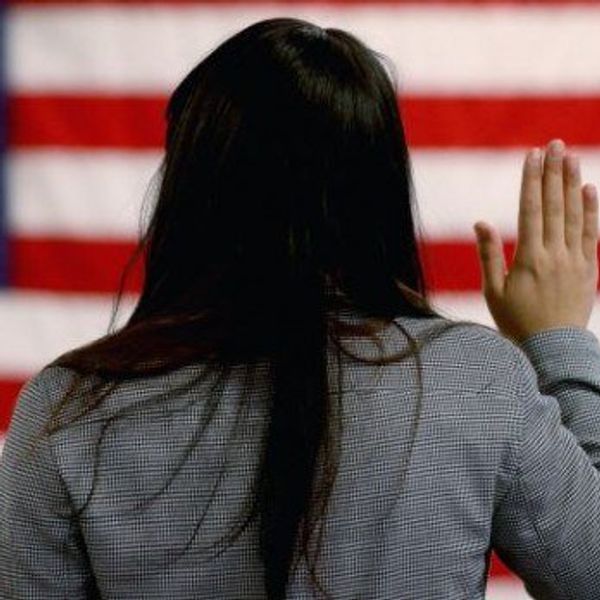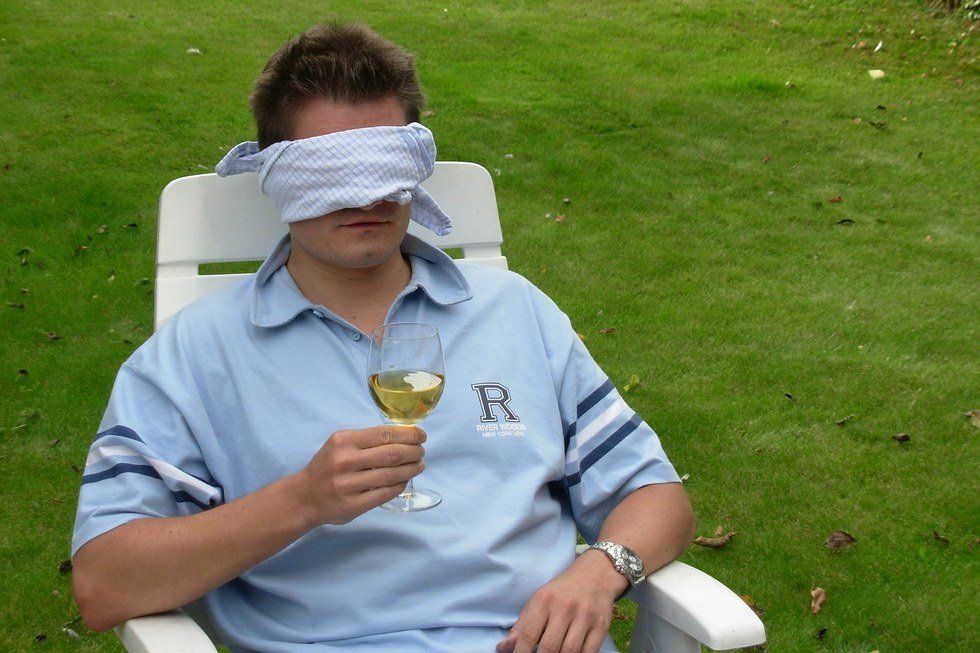The accusation of racism is thrown around a lot, isn't it? In response to it, we'll usually hear someone say that they "don't see color/race" or a something along those lines to disprove that accusation.
This disregard for race, or "color-blindness," is presented as a solution to this racism, meaning that they couldn't possibly be racist if they don't metaphorically see color.
Now, correct me if I'm wrong, but the idea behind this ideology is that by disregarding race in any decision-making process, you can give a much more even judgement. I just wouldn't be me if I let a flawed ideology slide without critique, and so I think it's time we analyzed color-blindness to see where the flaws exist.
I can at least see the merit in adopting the ideology. It's taking the thought that we can judge others by the content of their character, rather than the color of their skin, to the logical conclusion, right?
This seemingly pure intention provides the opportunity to advance to the oppressed group (we'll be using the black community, naturally), as they'll no longer be judged as oppressed. From there, they can just even the playing field themselves through hard work. The thing about that scenario (which surely isn't the only one) is that it leaves out a few things, while insinuating others.
It leaves out the fact that we can't actually avoid seeing race. If you look at a black person, naturally you'll see a black person. There's nothing wrong with that. It also misses the fact that racism isn't something that could blow away over night after a good speech. Think about it: Once the civil rights movement "ended" would racist sentiments in leadership simply disappear? After all, I don't think the issue of racism is due to it's existence. It's bound to exist one way or another. It's due to it's prevalence in our culture: It's power.
What that scenario insinuates is that the black community actually was less than at some point in time. Here's what I mean by that statement: We're all supposed to be equal right? If that's the case, then why is it the black community's responsibility to advance themselves when the issue is other social groups having opinions of them and those opinions having major influences on their lives?
Chris Rock explained things well when he said: "When we talk about race relations in America or racial progress, it's all nonsense. There are no race relations. White people were crazy. Now they're not as crazy. To say that black people have made progress would be to say they deserve what happened to them before."
If you prefer not to check out the link or his entire interview, which I highly suggest you do, he continued on to mention how having a black president doesn't really factor as progress for the black community, considering that it suggests that he's the first black person that's actually qualified for the position. Naturally, that's damaging to the community.
Now, to tackle color-blindness from a more individual standpoint, let's think of a singular person rather than a group. Plenty of black people have been told by others that they "don't see their race." I figure you're trying to express the sentiment that there are many race related problems, that tangle into a complicated mess of issues when brought up that typically makes you feel uncomfortable when a race related situation escalates, and so you've decided to ignore the problem: a person's race.
The thing is, what that's typically saying to the young black person is that you have just decided to ignore a large part of their identity. In the attempt to bring you closer together by looking only at your similarities, you've only further alienated them by classifying their outward identity as a problem.
I don't think color-blindness was the solution Martin Luther King Jr. was talking about when he said that great speech. I think it was the overriding of prejudice, but not the destruction of prejudice. I figure prejudice won't just go away. By definition, our pre-judgements are reflexive. You can't will away a reflex, but that doesn't mean that you should give total control to said reflex.
My proposed solution? Get to know more people that aren't like you, whether it's looks or interests. How else are you going to judge someone based on the content of their character? By getting to know them of course! Your prejudice is going to pop up and give it's baseless assessment, but by overriding it, you'll get to know the person anyways, which could benefit you and them.
This proposal isn't mutually exclusive with color-blindness however. You could still be ignoring their identity as you get to know them. Just keep in mind that their ethnicity matters, with their race being tied closely to that. Naturally, feeling uncomforable is going to happen, but this is an opportunity to learn rather than an event to avoid. Whether you take these words to heart, or merely look at all of this as one guy's perspective, I encourage you to just give it a try. You might be glad you did.





















